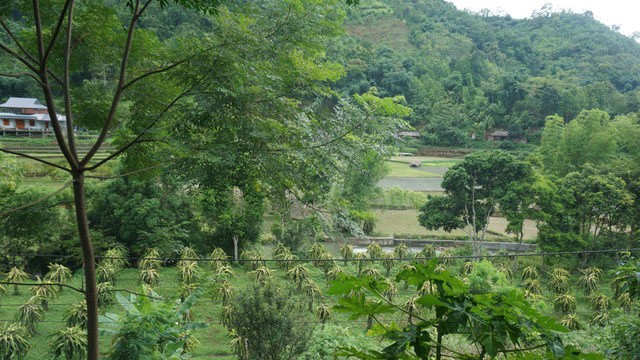Launch event: Anticipatory Social Protection Index for Resilience (ASPIRE)
[POSTPONED] Join the launch of a groundbreaking tool designed to assess country readiness to deliver climate resilience through social protection.

Young members of the fishing community build a clay embankment during low tide in the coastal region of West Bengal, India (Photo: Arnab Naskar/Climate Visuals, CC BY-NC-ND 4.0)
Anticipatory Social Protection Index for Resilience (ASPIRE) is a diagnostic tool designed to assess the readiness of a country's existing social protection programmes to deliver climate resilience. This event will officially launch this groundbreaking assessment tool which has been rigorously tested and is guided by nearly 70 indicators.
ASPIRE works at two levels: first by assessing a country's overarching social protection policies and systems, and second by examining specific programmes being implemented, evaluating their design features and functions.
The applicability and effectiveness of ASPIRE has been tested through analysis in eight countries, selected to represent a diverse range of climate risk contexts: Malawi, Ghana, Senegal, Bangladesh, Pakistan, Uganda, Ethiopia and India. Within each country, three social protection programmes were chosen for the assessment, representing different delivery mechanisms.
The analysis offers valuable insights into the design and operational effectiveness of these programmes under different climate risk settings, and brings into focus how each programme fares in anticipatory planning, resource allocation, targeting and crisis response.
ASPIRE provides evidence and data-driven insights to make informed policy decisions, leverage funding priorities, allocate resources effectively, and inform programme improvement strategies. This is a critical turning point in enhancing the effectiveness and impact of social protection programmes in delivering timely and targeted support to vulnerable communities facing climate change.
This event is for policymakers, funding agencies, development practitioners, researchers and anyone interested in how social protection mechanisms can be strengthened to combat the effects of climate change, particularly in vulnerable regions.
Speakers
- Dr Tom Mitchell, executive director, IIED
- Dr. Mahmoud Mohieldin, United Nation’s climate change high-level champion (tbc)
- Ritu Bharadwaj, principal researcher, IIED
- Dr Abid Suleri, executive director, Sustainable Development Policy Institute and Member, board of directors of Benazir income support programme (BISP), Pakistan
- Judith Karungi Mutabazi, senior planner, Population and Social Sector Planning department; National Planning Authority, Uganda
- Lara Evans, social protection advisor, U.S. Agency for International Development
- Gerard Howe, head, Adaptation, Nature and Resilience separtment; Energy, Climate and Environment directorate; Foreign, Commonwealth and Development Office (FCDO)
- Ben Webster, head of secretariat, Risk-informed Early Action Partnership (REAP)
- Dr Animesh Kumar, head, United Nations Office for Disaster Risk Reduction (UNDRR), Bonn office
About attending
Webinars are online workshops that people can attend via the internet from their desk or portable internet device.
This webinar will use the Zoom video conferencing platform. For those who have not attended a Zoom webinar before, please read this guide to participation as an attendee.
The event will be recorded to be distributed publicly afterwards. By registering for this event, you agree to give your consent for this.
The information you provide will be held on our database to process your booking. We do not share data with any third parties. We may contact you in the future about other IIED events. Please let us know if you do not want to receive any further information from us.
IIED events newsletter
Sign up to our mailing list for updates and invitations to events throughout the year, including webinars, critical themes and debriefs.
Contact
Mette Groen (mette.groen@iied.org) is senior project manager, IIED's Climate Change research group



